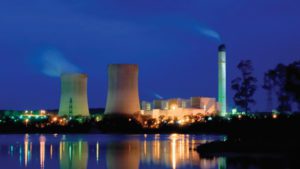“Disappointing effort. Has potential, could do a lot better.” That is how the report card of Australia’s global cleantech performance might read, based on the results of a new report commissioned by WWF. While four of Australia’s top trading partners were ranked among the world’s fastest growing clean energy manufacturing hubs in 2010-2011, Australia was found languishing in 26th spot. The study, the third edition of Clean Economy, Living Planet, assessed 40 countries and then ranked the top 25 based on the 2011 sales of the clean energy technology products they manufacture. And while Australia has managed to climb four rungs of the ladder since 2009-2010, from 30th spot to 26th, the report finds that this was largely due to increased sales in products for bioenergy, and that our cleantech industry is still failing to translate its relatively good innovation conditions into commercial ventures.
“This report should serve as yet another reminder of the huge economic opportunities being created by the clean tech boom,” said WWF National Climate Change Manager, Kellie Caught. “Australia has a proud history in machinery and equipment manufacturing as well as strong supply chains. With the right policies, Australia is perfectly placed to take advantage of the clean tech boom.” Caught says Australia could learn a lot from the developed countries at the top of the list, especially if it wants to keep pace with its Asian trading partners. “If you look at the developed countries … the reason they’ve done so well is because they developed a domestic industry,” she said. “That provided the foundation for the manufacturing base to grow.”
Caught said the Labor government’s polices of a clean energy target, the carbon price and the soon-to-be-established Clean Energy Finance Corporation were a good start. “The Clean Energy Finance Corporation, which is currently before the Senate, will further strengthen Australia’s policy support for clean energy and help secure our share of the global clean tech boom,” she said. The report states that by 2015, the global clean tech sector is expected to rival the oil and gas equipment market, when the forecasted market size will be between €240 and €290 billion.
In 2010-11 the top five fastest growing clean energy manufacturing hubs were Taiwan (+36 per cent), China (+29 per cent), India (+19 per cent), South Korea (+19 per cent) and the US (+17 per cent). In terms of clean technology sales weighted to the size of the economy, the report found that Denmark maintained the top spot, followed by China, Germany, Brazil and South Korea. The report says China is the largest cleantech country in absolute terms, and says it is “successful not only because of its lower labor and capital costs, but also because of its stable government policies, strong applied R&D and well-developed supply chain. As a result, China overtook the EU as the number one cleantech manufacturing region in absolute terms.”
Amazon: 1, Fossil fuels: 0
Oil buried deep in the Amazonian rainforest in Ecuador is set to stay untouched in exchange for help with the country’s economic development – a ground-breaking concept that has arisen from a project involving researchers from the Australian National University. The ANU’s Australian National Centre for Latin American Studies (ANCLAS) has won a $292,000 grant from AusAID under its Public Sector Linkages Program to study the feasibility of the plan, proposed by the Ecuador government, which aims to leave about 850 million barrels of oil – approximately 20 per cent of Ecuador’s reserves – in the ground, to avoid the potentially devastating effects that digging it up would have on the environment and indigenous groups.
Dr John Minns, Director of ANCLAS, said the Yasuní-ITT area of Amazonian rainforest is one of the most bio-diverse areas of the planet – a single hectare boasting a similar number of tree species as the whole of North America. “The area is extremely fragile and Ecuador has already suffered some serious environmental problems caused by the extraction of oil. Further extraction of oil would only cause more environmental damage, which can happen through oil spills. Additionally, roads and townships would have to be built,” Minns said. “Many of the world’s most sensitive environments are found in developing countries, which rely on the extraction of natural resources for revenue. It can be an extraordinarily difficult choice for those countries to forgo that revenue in order to preserve the environment.”
Over three years, Dr Minns and his colleagues will develop a cost benefit analysis of leaving the oil in the ground versus taking it out, assess potential damage to rainforest biodiversity, and evaluate threats to culture and health. The project will link ANU with Ecuadorian specialists in each of these fields at Ecuador’s Instituto de Altos Estudios Nacionales (National Institute of Higher Studies).”This initiative is at the heart of a series of development concerns related to resource exploitation and management, environmental and climate change questions and issues of indigeneity and economic change,” said Minns. “It raises the responsibility of the developed countries of the world for the environment outside their borders and especially in less wealthy countries.”
Another bankruptcy hits US solar makers
Konarka Technologies, the Massachusetts-based thin-film solar panel manufacturer backed by Chevron (among others), has filed for bankruptcy. The company’s CEO, Howard Berke, said on Monday it had been unable to find additional financing and was unable to continue operations, given its current financial state. Bloomberg reports that Konarka listed $US100,000 to $US500,000 in assets and $US10 million to $US50 million in debt in its Chapter 7 filing yesterday in US Bankruptcy Court in Worcester, Massachusetts. And in a separate filing, Konarka NB Holdings LLC listed $1 million to $10 million in assets and as much as $50,000 in debt.
Konarka now joins the ranks of at least four other US solar panel makers that have filed for bankruptcy in the past year as the price of the panels plummeted 50 per cent due to oversupply and production expansion in China, says Bloomberg. To add to the feeling of gloom in the sector, Konarka was one of the first solar companies to be funded with venture capital, according to Nathaniel Bullard, an analyst with Bloomberg New Energy Finance in San Francisco. “It received its first venture investments nearly 11 years ago, in August 2001.”
Like Solyndra, Konarka attracted such investment because its solar panels were not made of polysilicon – the raw material in conventional panels, the price of which steadily increased and peaked at $475 a kilogram in 2008. According to Bloomberg New Energy Finance data, the material’s average spot price has since fallen to $23.20 a kilogram. This left solar panels like Konarka’s – which were made from a conductive polymer invented by company co-founder and Nobel Prize-winner Alan Heeger – at a distinct disadvantage, as they were already less efficient at converting light into electricity.
Algae.Tec’s aviation addition
ASX-listed biofuels company Algae.Tec has announced the appointment of an award winning project manager and manufacturing engineer, with extensive aviation experience, as its new general manager of project operations. Colin McGregor is a multiple award recipient from the Australian Institute of Project Management, who recently headed up a Fuel Efficiency Program for a major international carrier – experience that will be vital to Algae.Tec as it works on projects with Lufthansa, Holcim Lanka, a joint biofuels venture in China, a showcase facility in Australia and a manufacturing base in Atlanta, Georgia.
“Algae.Tec is focused on the large-scale production of transport biofuels, and McGregor will bring deep knowledge and experience in delivering for this sector,” the company’s executive chairman, Roger Stroud, said in a statement on Tuesday. For his part, McGregor said he chose Algae.Tec from a selection of many biofuels offerings because it has a truly commercial, scalable and viable technology process. “I have looked at many biofuels companies around the world and Algae.Tec keeps coming up as a leader in this space.”










